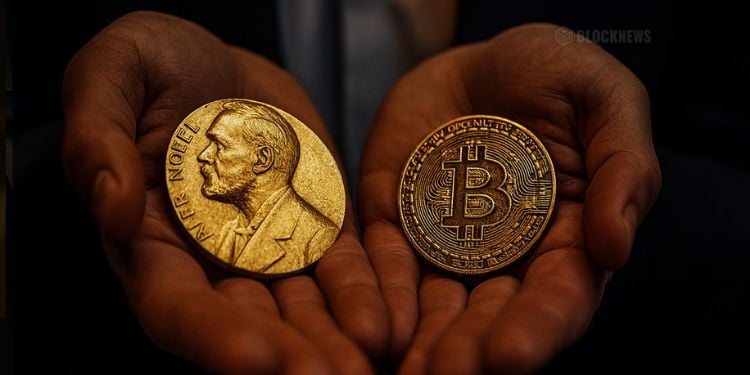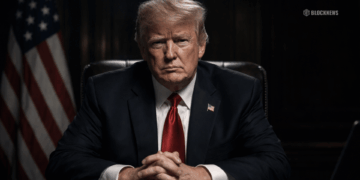- Venezuelan activist María Corina Machado won the Nobel Peace Prize for advocating Bitcoin as a lifeline for people facing oppression and hyperinflation.
- She believes Bitcoin’s decentralization empowers citizens to protect wealth and bypass government control in countries like Venezuela.
- Her recognition highlights the growing role of peer-to-peer tech and crypto in global human rights and financial freedom movements.
Venezuelan opposition leader and human rights activist María Corina Machado has been awarded the Nobel Peace Prize for her fight for freedom—and her bold advocacy for Bitcoin as a tool of liberation. Machado, long known for challenging Venezuela’s authoritarian government, has described Bitcoin as a “lifeline” for people trapped in collapsing economies. In a 2024 interview with Alex Gladstein from the Human Rights Foundation, she said, “Some Venezuelans found hope in Bitcoin during hyperinflation, using it to protect their savings and even to fund their escape.”
Her message was clear: Bitcoin isn’t just a speculative asset—it’s survival tech. She added that the only path to rebuilding Venezuela lies in protecting property rights, curbing inflation, and creating fair access to opportunity. For many, her stance bridged the gap between political freedom and financial independence, proving that decentralized technology could play a real role in human rights.
Bitcoin as a Tool of Resistance
While critics have accused Venezuela’s opposition of being influenced by foreign interests, Machado’s work focused on empowering individuals through financial autonomy. Bitcoin, she argued, helps Venezuelans bypass government-imposed exchange rates and the state’s control over currency. The technology’s peer-to-peer nature allows ordinary people to store value, trade freely, and even flee oppression—without relying on banks or corrupt intermediaries.
The use of Bitcoin as a resistance tool isn’t unique to Venezuela. Around the world, it’s become a symbol of defiance against state power. When Canada’s trucker convoy protesters had their bank accounts frozen in 2022, Bitcoin allowed them to keep receiving support. Authorities managed to seize a few tokens transferred through centralized channels—but most of the 20+ BTC raised through peer-to-peer methods stayed out of reach, untouched by government hands.
Decentralization as the New Frontier of Freedom
Machado’s recognition marks a turning point for how the world views decentralized networks—not just as financial tools, but as vehicles for human freedom. Peer-to-peer systems have shown their worth far beyond crypto trading. In Nepal, protesters turned to Jack Dorsey’s Bitchat, a Bluetooth-based decentralized messaging app, after the government shut down the internet and banned social media. The app allowed activists to communicate across a countrywide blackout, using nothing but a mesh of connected phones.
This kind of technology—unstoppable, uncensorable, and resilient—echoes the same philosophy behind Bitcoin. It represents a world where no government can silence speech, freeze funds, or erase the truth.
A Nobel for the Decentralized Age
For María Machado, the Nobel Peace Prize isn’t just a personal victory—it’s a symbolic one. It celebrates the merging of technology and human rights, showing that freedom today isn’t fought only in the streets, but in the code we use to protect ourselves. Bitcoin, for her and millions of others, is more than digital money—it’s digital resistance.














